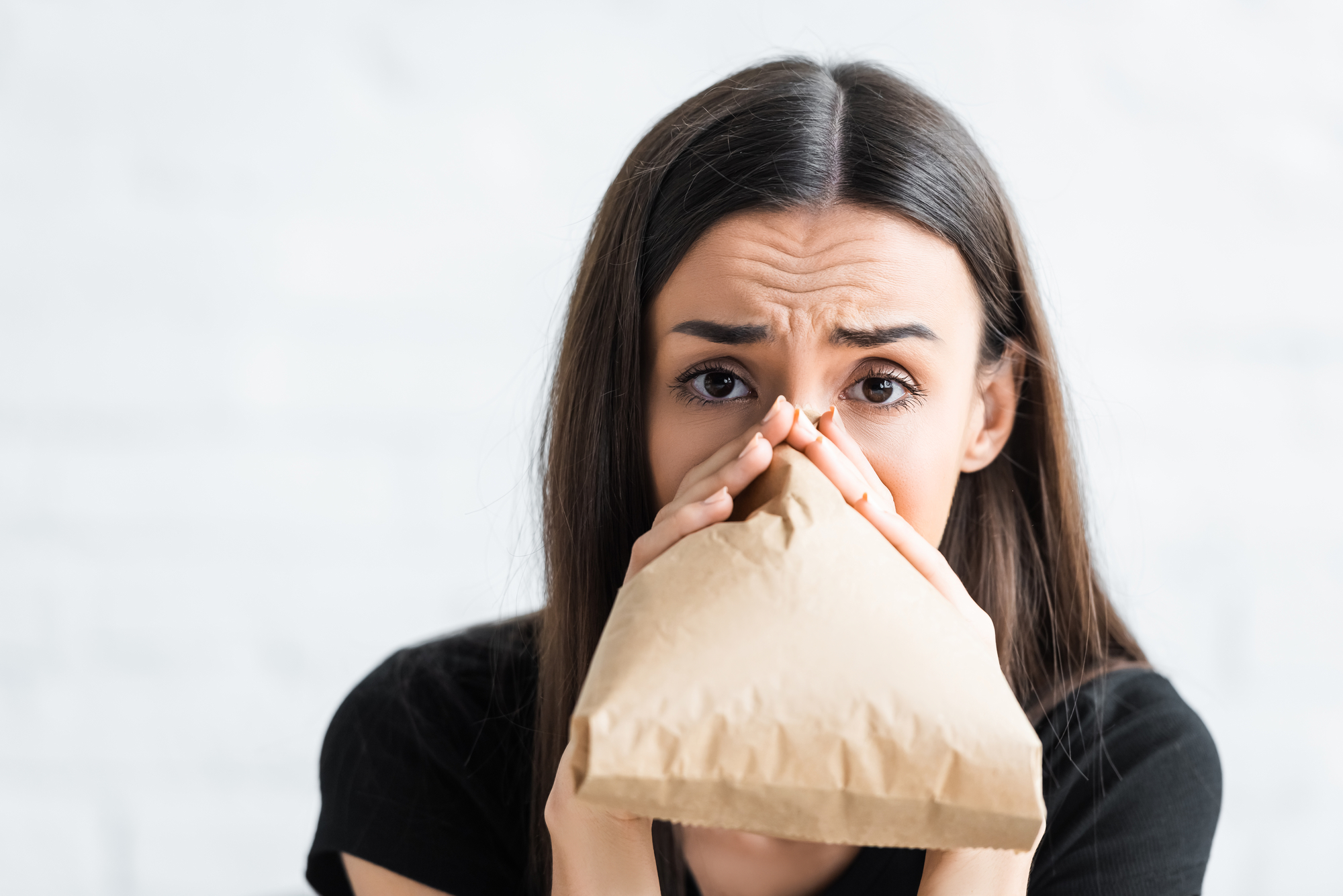Panic attacks are common. About 35% of the population has experienced a panic attack at least once in their life. Panic attacks are brief episodes of intense anxiety. They usually happen unexpectedly and suddenly. During the episode you experience intense fear that leads to physical reactions.
There is no threat to your life during a panic attack, but you may have the feeling as though you are dying. A panic attack can last anywhere from 5-30 minutes. They can be very frightening events, which can change your quality of life.
Causes
Panic attacks usually occur on their own with no cause. In some cases though it can be a symptom of another condition. Conditions like panic disorder. Panic disorder is when you have recurrent panic attacks close together. With panic disorder you also have extreme fear of having another panic attack that lasts for at least a month or longer. Other conditions that can cause panic attacks are anxiety disorders, mood disorders, phobias, psychotic disorders, substance use disorders, or trauma and stressor related disorders.
Illnesses that can lead to panic attacks are diabetes, asthma, inner ear complaints, hyperthyroidism, postpartum hyperthyroidism, or cardiac complaints.
Symptoms
Symptoms of a panic attack come on suddenly without warning. The actual attack may only last 5-30 minutes, but the physical effects may last for a few hours afterwards. Symptoms include chest pain, racing heart, difficulty breathing, trembling, shaking, chills, nausea, sweating, feeling faint, or tingling in your fingers. You may also have feelings of intense terror, choking, smothering, fear of losing control, feeling like you may die, derealization, or depersonalization.
Having a panic attack can be frightening which sometimes can leave you with the fear of having another one.
Risk Factors
- You are at a higher risk of having a panic attack if you have a family history of panic attacks.
- If you suffer from mental health conditions such as depression, it can put you at higher risk for panic attacks too.
- Adverse childhood experiences can also cause panic attacks. These are traumatic events that occur between the ages of 1-17.
Treatment
How your brain and nervous system handle fear and anxiety causes panic attacks. They occur when your flight or fight response is triggered even though there is no danger. This can be brought on from chronic stress, acute stress, intense physical exercise, excessive caffeine intake, habitual hyperventilation, illness, or a sudden change of environment. Sometimes there is no reason why a panic attack occurs.
If you experience symptoms of a panic attack you should speak with your healthcare provider.
Your doctor will start with a full physical exam. Afterwards they may do some blood tests to make sure there is no underlying condition. The last step of diagnosing will be a psychologist evaluation.
When experiencing a panic attack try not to self talk. Don’t tell yourself to stop panicking or to relax. Allow yourself to ride the panic.
Don’t run away from the situation either. Keeping yourself there will help you not feel frightened in the future. Instead focus your attention outside your body and symptoms. This could be as easy as counting backwards from 100.
If you have an underlying illness, treating that illness will help you alleviate the panic attacks.
Other treatment options are medications, proper breathing techniques, psychotherapy such as cognitive behavior therapy, biofeedback therapy, relaxation techniques, stress management techniques, learning problem solving skills, or lifestyle adjustments such as diet, exercise, and sleep.
Prevention
Most people may only experience one panic attack in their whole lives. Doing some lifestyle changes such as proper sleep, good diet, daily exercise, and avoiding caffeine, alcohol, and recreational drugs. Learning breathing techniques can also help you make it through a panic attack when they arise.
If you are around someone who is having a panic attack ask them what you can do. Keep calm. Talk to them in short sentences. Help them focus on the present. Help them with their breathing. Confidently tell them that they are ok and safe and this feeling is temporary.
Panic attacks can be uncomfortable and frightening. They usually pose no threat to your life.
Exercise, a healthy diet and adequate sleep can reduce the chances of a panic attack! #HealthSurgeon
Sources:
https://www.betterhealth.vic.gov.au/health/conditionsandtreatments/panic-attack
https://www.mayoclinic.org/diseases-conditions/panic-attacks/diagnosis-treatment/drc-20376027
https://my.clevelandclinic.org/health/diseases/4451-panic-attack-panic-disorder
https://www.webmd.com/anxiety-panic/panic-attack-symptoms
https://www.nhsinform.scot/healthy-living/mental-wellbeing/anxiety-and-panic/how-to-deal-with-panic-attacks









